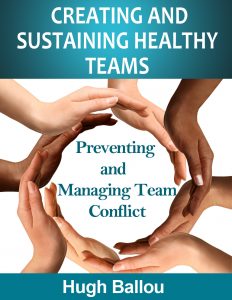Orchestrating Success

OS 93: Leadership Paradigms - Secret vs. Confidential
Secret vs. Confidential
“Don’t confuse “strict confidentiality” with “keeping employees in the dark.” Private is useful. Secretive is deceptive.” ― Stacy Feiner
The Difference in Secret and Confidential
Secret is withholding information for power.
Confidential is privileged information.
Knowing the difference separates good leadership from bad.
In my ebook, Creatingg Healthy Teams: Preventing and Managing Conflict , I define the elements of conflict and provide descriptions, preventions, and prescriptions for conflict. It's really evident how much the element of keeping secrets impacts the culture.
, I define the elements of conflict and provide descriptions, preventions, and prescriptions for conflict. It's really evident how much the element of keeping secrets impacts the culture.
In human emotional systems, everyone is connected - formally or informally. How we interact defines the outcomes of our work together. Secrets are like gossip. The secret discussions get distorted and nobody in the group feels that they have the right or permission to intervene until the situation becomes toxic. And then, most likely it's too late and relationship have been damaged.
There's a game that people play where a person whispers a secret to the next person who relays the secret to the next person in line. The others pass the secret down the line with the final person shares what they heard with the group. After hearing what the first person shared, the group is amazed at how the message got distorted in the process of relaying the message secretly. This shows how information is distorted when sharing secretly.
Secrets are toxic and are about holding and using power. Confidential information is privileged information help closely to the leadership. There is an emphatic difference in the two. Knowing the difference is a leadership skill.
Teaching the difference to those whom you lead impacts the health of the group and the organization.
Develop a Standard for Excellence
Here are 4 tips for dealing with secrets:
- Assumption - Do not assume or let others assume that the conversation is confidential unless there is an express agreement ahead of time. Many times those wielding power relay a message and then say that it is "confidential." To agree to those terms after the fact means that the person sharing the secret has just held you hostage by providing you with negative information with no way to deal with it or attempt to resolve it. Do not buy into assumptions. Be clear and have clear guiding principles about how to respond to this situation. Not being held hostage by insisting on accountability and transparency, is the best way to diffuse this toxic behavior.
- Buy-In - By listening to the entire message when it is clear that the person delivering the message is just complaining and spreading negative energy, you are, in fact and perception, buying in to their message. Listening is a form of loving and relationship building, but only when the message is appropriate and is not creating a negative triangle. Once you determine the negative nature of the message, declare that you will not keep it secret and attempt to connect this person to someone that is appropriate for the message. Undo this triangle by connecting the three people in the triangle so a meaningful conversation can take place.
- Model - People whom you lead will follow your example. If you spread secrets, then you are saying it's alright to do it. Model excellence. Model high functioning. Model transparency and honesty. Model directness. The leader impacts the behavior and functioning of everyone in the system with their functioning. If something is wrong with the culture, then look in the mirror to see if you can find the cause.
- Act - At the first indication of conflict because of the spreading of secrets, intervene with the process gently. Ask for transparency. Connect the parts of the triangle - or overlapping triangles. Stay calm and speak directly to the issues. Stay away from accusations. Use "I" language rather that what seems accusatory by using "you." Use information you have observed and do not interpret for others who are not present. This modeling impacts the functioning of others. Act at the first appropriate opportunity. If you wait, the situation gets worse. A minor problem can create a nuclear disturbance if left untended. Do it now - later might be too late.
Transparency is a leadership skill. Create transparency in your culture by being transparent.






 Visit Podcast Website
Visit Podcast Website RSS Podcast Feed
RSS Podcast Feed Subscribe
Subscribe
 Add to MyCast
Add to MyCast